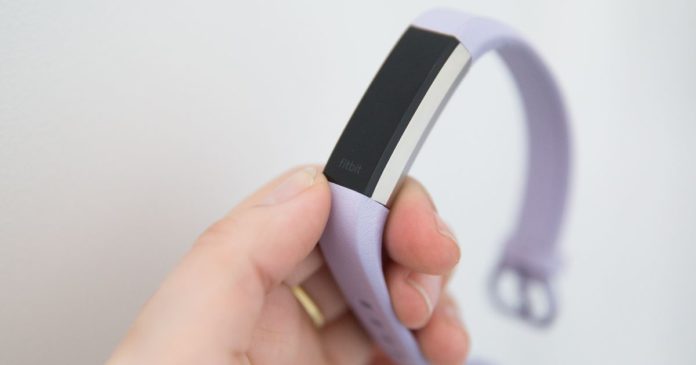/https%3A%2F%2Fblueprint-api-production.s3.amazonaws.com%2Fuploads%2Fcard%2Fimage%2F468704%2Fa63d669c-5544-4a81-b203-a4ad03d71f7c.jpg)
Move over, Fitbit: there’s a new ruler of the wearables market.
Even though Tim Cook won’t disclose exact Apple Watch marketings numbers, the company has been crowned the new top dog of wearables, pushing Fitbit off its throne.
Strategy Analytics‘ latest report on the state of the world wearables market found that Apple’s marketshare has expanded rapidly from last year, with a 3.8 percent spike from 12.1 percent in Q1 2016 to 15.9 percent in 2017. The analytics firm calculated( because again, Tim Cook won’t tell us the real sum) that Apple shipped 3.5 million watches during the course of its quarter, up from 2.2 million in the two periods last year.
“The new Apple Watch Series 2 is selling relatively well in the U.S ., UK, and elsewhere due to enhanced styling, intensive marketing and a good retail existence, ” Strategy Analytics Executive Director Neil Mawston said in a statement.
Other analysts have pointed to the Series 2 Watch’s increased focus on health and fitness features as being especially appealing to consumers.
While Apple’s rise to the top is surely notable, “the worlds biggest” news might be how the marketshare has spread over the past year. Fitbit and Xiaomi both took up more than a fifth of the entire wearable market in Q1 2016. Fast-forward one year, and those shares have fallen dramatically, from 20.9 percent to 15.5 percent for Xiaomi and, even more drastically, 24.7 percent to 13.2 percent for Fitbit.

Apple finally leapfrogged Fitbit to take the top spot in the wearables market.
Image: strategy analytics
Apple’s gain was, more than anything else, Fitbit’s loss. The activity tracking giant’s fall from the top spot in the market goes after ceding most of its produce last quarter. The plummet is merely the most recent sign of difficulty for the company, which began the year by laying off six percent of its workforce.
“Fitbit has lost its wearables leadership to Apple, due to slowing is asking for its fitnessbands and a late entry to the emerging smartwatch market, ” mentioned Cliff Raskind, the Director at Strategy Analytics, in the statement. “Fitbits shipments, revenue, pricing, and profit are all shrink at the moment and the company has a major battle on its hands to recover this year.
“Fitbits shipments, revenue, pricing, and profit are all shrink at the moment and the company has a major battle on its hands to recover this year.
The company’s recovery could hinge on its upcoming smartwatch, which has been the subject of a series of unflattering leaks. The machine, which still hasn’t been officially announced, was reportedly delayed until afterward this fall after major development issues, and was called, among other things, “definitely not sexy” by the leakers.
Uncertain futures
While Fitbit’s ultimate fate is still unclear, the future of wearables, more particularly smartwatches, has been repeatedly called into question, even by some of the people in charge of the companies attaining them.
Most recently, the new ruler of the market had a scary minute when several premium apps, including those from Google Maps, Amazon, and eBay, quietly dropped their supporting from the Apple Watch.
With the entire smartwatch industry potentially on the brink, one might think that Apple refusing to share its stats could be a cause for concern. For Raskind, that ambiguity isn’t a problem. When would like to know whether Apple’s policy obliterates the actual state of the market for analysts, he was confident in his methods.
“We have been tracking gadget marketshare for vendors like Apple, Samsung, etc. since the 1990 s and have long developed render and requirement side based methodologies to verify shipment and market numbers, ” he told us via email. “Market sizing for wearables and smartwatches is an expert process of sourcing numbers from multiple brands and not just one brand.”
There you have it: Apple might be king( for now ), but at the end of the day, the market is bigger than merely one company.
Read more here: http :// mashable.com /




